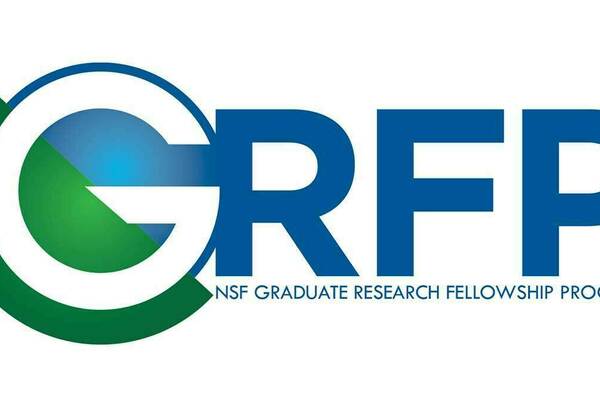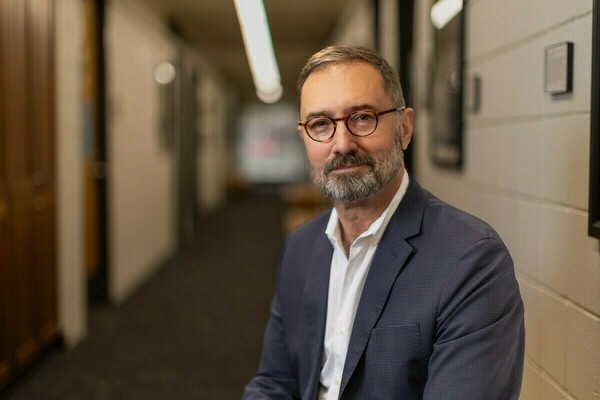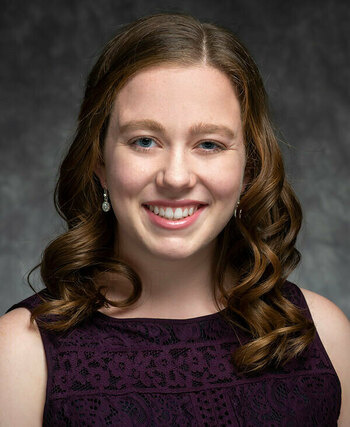
Julia McKenna is still a Notre Dame undergraduate student, but you could easily mistake her for a professional scholar, given how much research she’s conducted.
Research has been a hallmark of her Notre Dame career, though somewhat organically — year after year, she followed her academic passions, and research became a key part of every one. With six research experiences under her belt, she’s found it’s taught her independence and self-sufficiency, how to ask strong questions, and what she wants to do with the rest of her life.
The sociology major is pursuing three independent research projects this year — one senior thesis and two capstones — and admits even she sometimes forgets what it’s like being a student exclusively.
“I joke that my job this year is just being a full-time author,” said McKenna, a sociology major with minors in linguistics and data science. “I’m in just a couple of typical classes because I’m just spending all my time reading and researching. It’s definitely been an exercise in being a very self-motivated researcher.”
McKenna didn’t plan on research becoming such a central focus of her academic career, but that’s how it worked out. During her time at Notre Dame, she continually found herself riveted by new academic paths and energized by the act of research, eventually discovering that the latter was the best way to dive deeper into the topics she loved.
“Something that challenged me and allowed me to grow is realizing that when you’re an undergrad, you’re part of the learning process,” she said. “You’re not just here to sit and absorb information. There’s a lot more learning that goes on outside the classroom than I would have expected.”
A mindset shift
McKenna came to Notre Dame not sure what she wanted her major to be, but decided sociology was right for her after being intrigued by the variety of topics and questions addressed in her introductory course on the subject.
She especially loved the opportunity the major provided to study human social systems, patterns, and environments, and the flexibility of the program allowed her to customize her coursework to align with her interests.
“I liked the mathematical and statistical approach that a lot of researchers used to address problems,” she said. “And I really just felt like a lot of the issues that I was passionate about, that you could study them through the lens of sociology.”
“When you’re an undergrad, you’re part of the learning process. You’re not just here to sit and absorb information. There’s a lot more learning that goes on outside the classroom than I would have expected.”
She has spent her time in the major exploring the sociology of health and medicine, race and social activism, social networks, and population dynamics. The curriculum has offered plenty of surprises — especially in a criminology course she took her sophomore year, which reoriented her perspective through a deep dive into what crime is, how it’s categorized, and its systemic causes.
“It was really cool to have my mindset shifted like that,” McKenna said. “And I think that’s what sociology tries to do. The idea is we’re not just reading news articles and discussing what's going on today, but we're trying to understand the reasons behind all of it. We're trying to deconstruct what got us to this point.”
McKenna has long been interested in languages, and planned on minoring in linguistics before she arrived at Notre Dame in order to comparatively study them. Her minor in data science was unexpected, though, given that she had no experience with coding prior to trying an Elements of Computing course.
Both that class and the minor as a whole, she said, have bolstered her primary studies and the research she’s done within them.
“Data science was a happy accident, but it really complemented sociology,” she said. “It gave me the skills to do other kinds of research that I probably wouldn’t have been able to do without it.”
Research what you love
McKenna’s first encounter with research was also the most impactful, as it revealed an unexpected goodness in people that deeply moved her.
As an undergraduate research fellow at the Notre Dame Institute for Advanced Study, she worked with a visiting Ohio State University professor who was studying the reintegration of Rwandans convicted of genocide. She was surprised to find that Rwandan citizens were very willing to accept these individuals back into society, despite their previous wrongdoing.
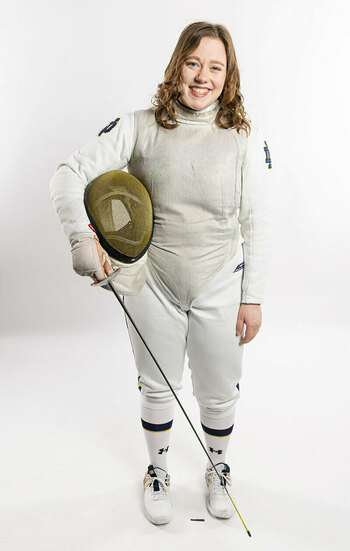
“I had this realization that the research we were doing showed that people are extremely resilient, that people are extremely forgiving,” she said. “For me, it was one of those moments where I realized that research isn't just an academic pursuit. There are personal lessons you can draw from it, too.”
McKenna furthered her research experience as a junior, working with sociologist Kraig Beyerlein to study social and political activism in Chicago’s religious communities. The project’s goal is to map every religious community in Chicago and understand motivating factors of each community’s involvement in activism or not.
She also worked with anthropologist Susan Blum on the School Stories Project, a qualitative study of experiences in the education system and in schooling. McKenna is helping conduct interviews and find stories online detailing what school was like for people, with the goal of creating a digital archive of school experiences around the world.
As a senior, McKenna has now taken on three independent projects of her own, one each for her major and two minors.
For her sociology senior thesis, she is studying the impact of people’s perception of climate change on their mental health.
“I’m asking, ‘How does climate change and the looming threat of it negatively impact people?’” McKenna said. “I’m hypothesizing that it does — that this is an existential threat, if you will.”
For her linguistics minor, she is studying conflict resolution in school settings and how students navigate conflict linguistically, including what makes a successful conflict resolution versus what makes a failure.
Finally, her data science minor led McKenna to become a fellow in the iTREDS Program at the Lucy Family Institute for Data & Society, in which she is working on a group project with professor Paul Winters focused on analyzing international agricultural projects.
The group is scraping the web and analyzing text files to analyze how food and agriculture projects throughout the world are addressing issues like climate change and food insecurity.
It makes for a lot of different projects to juggle, but McKenna said that’s not hard when you’re researching topics you love.
“You make time for the things that you're passionate about,” she said. “You scope out time in your schedule for things because they matter to you and because there are professors who care about the projects and are invested in them.”
Asking big questions
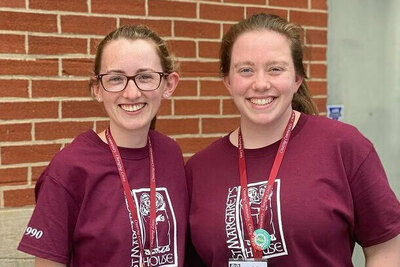
McKenna has strived to make the most of her summers, as well, taking on two very different internships. She spent one summer at a South Bend day center for women and children through the Center for Social Concerns, and last summer worked at a genetic testing company’s environmental social governance team. There, she used her data science background to help the company understand its waste stream production and greenhouse gas emissions.
“I’ve really sampled a lot of different things to try and figure out what field I want to be in and just have a variety of experiences, which has been really nice,” she said.
McKenna also spends about 20 hours per week training and conditioning as a member of Notre Dame’s defending national champion fencing team.
“I think it just speaks to how the Notre Dame experience is so varied. I get to, on the one hand, spend so much of my week as an athlete, and then I get to turn around and go to class and then I get to go do research,” McKenna said. “I get to wear all of these different hats.”
After Commencement, McKenna will begin a master's degree program in smart and sustainable cities at Trinity College Dublin, and hopes to pursue a career at the intersection of sociology and data science.
“I’m really hoping to blend my studies one day, looking at things like data-oriented public policy and helping create legislation that I think best supports people’s lives and using data to support that,” she said.
Studying in the College of Arts and Letters has prepared her for her research, internships and future pursuits, McKenna said, by fostering in her the ability to identify people’s needs.
“Arts and Letters gets at the heart of people’s experiences and how people interact in the world,” she said. “My education has prepared me to ask those really big questions of, ‘What is this person looking for? What barriers are they facing? What resources do they need?’ You’re engaging with everyday topics that people care a lot about.”
“Arts and Letters gets at the heart of people’s experiences and how people interact in the world. ... You’re engaging with everyday topics that people care a lot about.”
